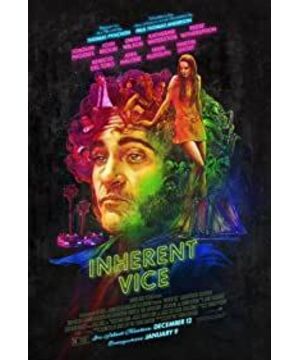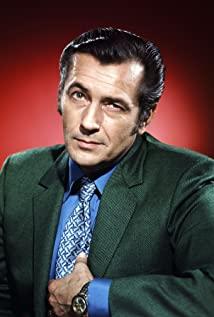Text/Guijiaoqi After
watching "Nature is Evil", the audience will probably be divided into two categories. One is mellow and full of aftertaste, which resonates with the slightly weird and peculiar atmosphere in the film; the other is unclear. , Yunshan Mistshade, murmured and left the theater. Oh, there should be a third category. They slept for two-thirds of the time during the viewing process-"Sexually Evil" is just such a film, it will inevitably only arouse the polarization of the viewing experience After all, under the seemingly inattentive appearance, this film contains many genres and story elements: detectives, drugs and money, funny comedies, violence and sex, and in the end, it happened between the detective and the sheriff. A certain kind of subtle sympathy and sympathy makes people feel helpless and sad. Paul Thomas Anderson's "Nature is Evil" is not so much a nostalgic film reflecting and reviewing the various social conditions in Southern California in the 1970s, as it is this film (and Thomas Pynchon's original novel) In itself, it is full of fascinating fantasies and the 70s itself.
What was it like in the 1970s? California in the film is undoubtedly the best incarnation and the biggest background color covering the whole film. Detective Dock was doing nothing, smoking marijuana, and living a chaotic life of hippie. He was suddenly entrusted by his ex-girlfriend, and he began to investigate in a vague way, to meet some inexplicable people and get inexplicable clues. In the film, in fact, the development of the plot is not the focus of our attention. What makes the film fascinating is that with the ups and downs of Dock's state of being sober and excited by marijuana, in the traditional detective film "Detective Case" "This process was drastically eliminated. We only saw lengthy dialogues and sudden turnarounds. Some characters were unconventional, while others were frivolous. Doc doesn't take the initiative in these events, but more like being pushed a little bit by an unknown force to get closer to the final outcome. The film obviously juxtaposes this process with Dock's behavior of holding auntie's cigarette anytime and anywhere, and constitutes the best description of that era: "Chaos, but happiness". Or from another angle, we can see what this unique atmosphere is like. Doc’s rival in the whole film, the police "Bigfoot" is a person who is completely opposite to Doc. He is methodical, determined and motivated. The most annoying is the idle hippie gangster, but his life state is It was the ridicule from the surroundings that was depressed and endured the pain. The interweaving of these two characters forms the core of the film. The 1970s was a misty era. It moved forward in the smoky smoke. Perhaps a sleepy ruffian could easily obtain the key to changing the situation, but the diligent and thrifty police did nothing. Therefore, it is not difficult for us to understand that "Bigfoot" at the end of the film poured all the marijuana butts into his mouth in front of Doc. The tragedy and helplessness of this is that I cannot compete with the entire chaotic era. , If everyone is drunk and I wake up alone, then people who are alone can't avoid pain.
But the film does not put Dock in a negative position. He is not just a drug addict who takes drugs all day. He loves his ex-girlfriend, so he promised to help him investigate. He is brave enough to investigate. Will fall into crisis, and more importantly, after he found the rich businessman Mickey, the story could have ended. But in order to rescue the singer who was "dead", he had no hesitation in dealing with drug dealers. Doc is a contradiction. Half of him is a primitive innocent person, kind and firm, while the other half is contaminated by that era, cynic and decadent. The complexity of this character makes it impossible for us to easily define him, just as we cannot easily define that era. It is precisely because of this that the reconciliation between Doc and "Bigfoot" at the end of the film is very moving. Dock understands the pain of "Bigfoot", and "Bigfoot" also admits his fragility. The two shared The same marijuana cigarette, and then waved goodbye.
The eye-catching point of "Nature is Evil" is very low. A hippie who takes drugs, an unscrupulous policeman, an inexplicable conspiracy, and everyone is happy in the end. But behind this low angle of view, it is the troubled times of American society, whether it is the looming political environment in the film, the mental hospital with the "big brother" color, the weird eye clinic, or the more straightforward expression about usury. The interlocking interests of drug dealers, drug dealers, and high-level officials all seem to be peeling away a corrupt tumor in this society, and filthy and stinky things are pouring out of it one after another. Doc may be able to pass and ignore by the powerful effects of drugs, but for us sitting in front of the screen, we must witness the darkest side of this society. In this sense, the conclusion of "natural nature is evil" does not point to the living beings in the film, but to the corrupt society behind it, which is absurd and ridiculous, and must use illusion to survive.
This is the 70s in "The Evil of Nature". It is neither cruel nor heroic, but living in a muddle-headed manner. The upper class may have their own way of life, but for Dock, all that is needed is a cigarette and a relationship. That's it. At the end of the film, Doc and his ex-girlfriend are sitting in the car, recalling their relationship back then. It’s just like most of the plots of the story between them in the film. We don’t know if this scene is just Doc’s. Hallucinations.
Originally published in "Watching Movie Weekly" in February 2015
View more about Inherent Vice reviews











